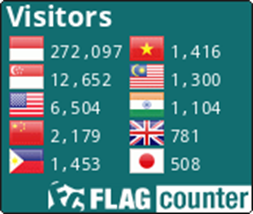The Role of Human Resource Management in Service Sectors during Covid-19 Pandemic
DOI:
https://doi.org/10.26905/jbm.v8i1.5700Keywords:
Covid-19, Leading Organization, Leading People, Organizational Performance, TrustAbstract
In today’s business world, human resources are considered as an important resource for the organization’s success. To make better use of human resources, organizations must empower their employees This study aims to determine the impact of leading organization and leading people on trust and the organizational performance in the service sectors during Covid-19 pandemic. The research is quantitative, and the sampling technique is purposive sampling, with 103 respondents. Data collected were analyzed using Partial Least Squares path modeling to test the hypotheses. The study’s findings proved positive and significant linear relationship between leading people on trust and organizational performance. Managerial implication that the success leader in service sectors able to elevate trust among people, motivate the employees and to enhance organizational performance. As result, leadership training and elevate the trust amongst employees are the most essential strategies in service sectors during the Covid-19 pandemic.
Â
Downloads
References
Al-Madi, F. N.; Assal, H.; Shrafat, F.; & Zeglat, D. 2017. “The Impact of Employee Motivation on Organizational Commitment.†European Journal of Business and Management 9 (15) (July): 134–45.
Anggiani, Sarfilianty. 2020. “Effect of Transformational Leadership on Employee Creativity: Perceived Organizational Support Mediator (Study Empiric At Five-Star Hotels in Jakarta).†PEOPLE: International Journal of Social Sciences 4 (3): 1862–75. https://doi.org/10.20319/pijss.2019.43.18621875.
Avolio, Bruce J., William L. Gardner, Fred O. Walumbwa, Fred Luthans, and Douglas R. May. 2004. “Unlocking the Mask: A Look at the Process by Which Authentic Leaders Impact Follower Attitudes and Behaviors.†Leadership Quarterly 15 (6): 801–23. https://doi.org/10.1016/j.leaqua.2004.09.003.
Collins-Kreiner, Noga, and Yael Ram. 2020. “National Tourism Strategies during the Covid-19 Pandemic.†Annals of Tourism Research, no. xxxx: 103076. https://doi.org/10.1016/j.annals.2020.103076.
Dasborough, Marie T. 2006. “Cognitive Asymmetry in Employee Emotional Reactions to Leadership Behaviors.†Leadership Quarterly 17 (2): 163–78. https://doi.org/10.1016/j.leaqua.2005.12.004.
Davis, James H., F. David Schoorman, Roger C. Mayer, and Hwee Hoon Tan. 2000. “The Trusted General Manager and Business Unit Performance: Empirical Evidence of a Competitive Advantage.†Strategic Management Journal 21 (5): 563–76. https://doi.org/10.1002/(SICI)1097-0266(200005)21:5<563::AID-SMJ99>3.0.CO;2-0.
Gardner, William L., Dawn Fischer, and James G.(Jerry) Hunt. 2009. “Emotional Labor and Leadership: A Threat to Authenticity?†Leadership Quarterly 20 (3): 466–82. https://doi.org/10.1016/j.leaqua.2009.03.011.
Gill, Amarjit S., Alan B. Flaschner, and Mickey Shachar. 2006. “Mitigating Stress and Burnout by Implementing Transformational-Leadership.†International Journal of Contemporary Hospitality Management 18 (6): 469–81. https://doi.org/10.1108/09596110610681511.
Koohang, Alex, Joanna Paliszkiewicz, and Jerzy Goluchowski. 2017. “The Impact of Leadership on Trust, Knowledge Management, and Organizational Performance: A Research Model.†Industrial Management and Data Systems 117 (3): 521–37. https://doi.org/10.1108/IMDS-02-2016-0072.
Lee, Peter K.C., T. C.Edwin Cheng, Andy C.L. Yeung, and Kee hung Lai. 2011. “An Empirical Study of Transformational Leadership, Team Performance and Service Quality in Retail Banks.†Omega 39 (6): 690–701. https://doi.org/10.1016/j.omega.2011.02.001.
Mastrangelo, Angelo, Erik R. Eddy, and Steven J. Lorenzet. 2014. “The Relationship between Enduring Leadership and Organizational Performance.†Leadership and Organization Development Journal 35 (7): 590–604. https://doi.org/10.1108/LODJ-08-2012-0097.
Mayer, Roger C., and Mark B. Gavin. 2005. “Trust in Management and Performance: Who Minds the Shop While the Employees Watch the Boss?†Academy of Management Journal 48 (5): 874–88. https://doi.org/10.5465/AMJ.2005.18803928.
Paliszkiewicz, Joanna, Jerzy Gołuchowski, and Alex Koohang. 2015. “Leadership, Trust, and Knowledge Management in Relation to Organizational Performance: Developing an Instrument.†The Online Journal of Applied Knowledge Management 3 (2): 19–35.
Peterson, Suzanne J., Fred O. Walumbwa, Kristin Byron, and Jason Myrowitz. 2009. “CEO Positive Psychological Traits, Transformational Leadership, and Firm Performance in High-Technology Start-up and Established Firms.†Journal of Management 35 (2): 348–68. https://doi.org/10.1177/0149206307312512.
Schaubroeck, John, Simon S.K. Lam, and Ann Chunyan Peng. 2011. “Cognition-Based and Affect-Based Trust as Mediators of Leader Behavior Influences on Team Performance.†Journal of Applied Psychology 96 (4): 863–71. https://doi.org/10.1037/a0022625.
Škare, Marinko, Domingo Riberio Soriano, and Małgorzata Porada-Rochoń. 2021. “Impact of COVID-19 on the Travel and Tourism Industry.†Technological Forecasting and Social Change 163 (April). https://doi.org/10.1016/j.techfore.2020.120469.
Verburg, Robert M., Ann Marie Nienaber, Rosalind H. Searle, Antoinette Weibel, Deanne N. Den Hartog, and Deborah E. Rupp. 2018. “The Role of Organizational Control Systems in Employees’ Organizational Trust and Performance Outcomes.†Group and Organization Management 43 (2): 179–206. https://doi.org/10.1177/1059601117725191.
Waldman, David A., Gabriel G. RamÃrez, Robert J. House, and Phanish Puranam. 2001. “Does Leadership Matter? CEO Leadership Attributes and Profitability under Conditions of Perceived Environmental Uncertainty.†Academy of Management Journal 44 (1): 134–43. https://doi.org/10.2307/3069341.
Wang, H. U. I., Sui, Y., Luthans, F., Wang, D., and Y. Wu. 2014. “Impact of Authentic Leadership on Performance: Role of Followers’ Positive Psychological Capital and Relational Processes.†Journal of Organizational Behavior, J. Organiz. Behav. 35, 5–21 (2014) 35 (November): 5–21. https://doi.org/10.1002/job.1850.
Downloads
Published
How to Cite
Issue
Section
License
Authors who publish with this journal agree to the following terms:
(1) Copyright of the published articles will be transferred to the journal as the publisher of the manuscripts. Therefore, the author confirms that the copyright has been managed by the journal.
(2) Publisher of Jurnal Bisnis dan Manajemen is University of Merdeka Malang.
(3) The copyright follows Creative Commons Attribution–ShareAlike License (CC BY SA): This license allows to Share — copy and redistribute the material in any medium or format, Adapt — remix, transform, and build upon the material, for any purpose, even commercially.














